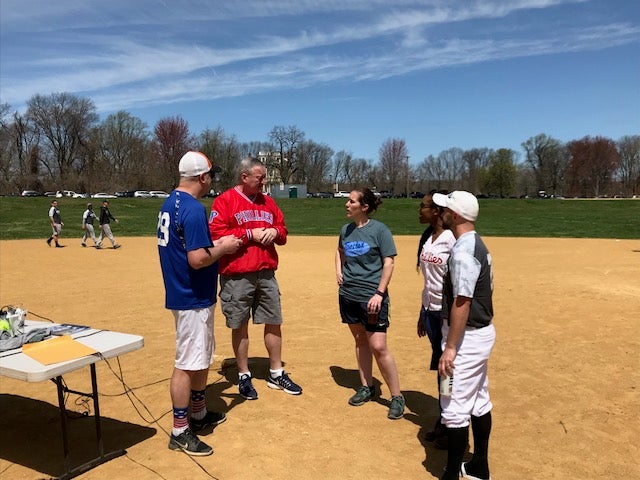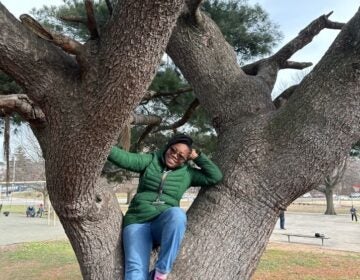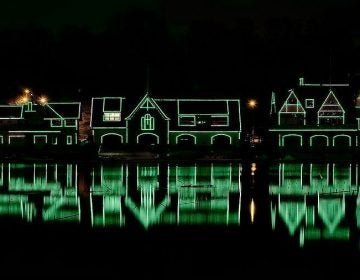Philly’s LGBTQ softball league celebrates 35 years on the field
“At first it was kind of a joke,” said co-founder Jeff Iberson. “But then it started to become something that we took seriously.”

The Bad News Queers, one of 30 teams in the City of Brotherly Love Softball League, take the field in Philadelphia's Fairmount Park. (Shai Ben-Yaacov/WHYY)
The first teams to take Dairy Field Three in Fairmount Park Sunday afternoon were the Flaming Poodles and the Bad News Queers. It was a confusing matchup for onlookers as both teams were wearing purple shirts. But that’s life in a summer beer league, and the City of Brotherly Love Softball League is no exception.
The league is celebrating it’s 35th anniversary this year, and it began with boredom.
Co-founder Jeff Iberson says it all started when a group of gay men in the 1970’s were just looking for a way to play ball.
“At first it was kind of a joke,” he said. “But then it started to become something that we took seriously.”
They formed just one team, which played other non-gay teams throughout the city. The idea for a league came only after Iberson’s team was invited to play in a tournament hosted by Pittsburgh’s gay league.
The league that was born from that original team now has more than 600 players and 30 teams, and it has become the city’s largest LGBTQ sports league.

Before throwing out the opening pitch, Mayor Jim Kenney lamented that members of the LGBTQ community haven’t always been able to be themselves publicly.
“You’re as deeply ingrained in this country’s history as baseball or any other institution that we have,” he said.
The league started in 1983, during the height of the AIDS epidemic, and Iberson said they lost many members to the disease.
“These folks for the most part don’t remember that we lost an awful lot people,” he said.
Over the years, City of Brotherly Love Softball has become all-inclusive. Its website says while it identifies as an LGBTQ sports organization, “the league is comprised of those identifying within the community as well as its supporters.”
One of those supporters is Jay Grawber, who joined with his twin brother, who is gay, 20 years ago. While his brother has since moved away, Grawber continues to play with the league.
“I enjoy the league and playing with everybody,” he said. “We’re human beings. We don’t discriminate any type of sexuality, and I love everybody and have stayed with it.”
Thirty-five years ago, leagues like CBLSL were few and far between. Now, with some professional athletes coming out, such leagues, and gay athletes in general, are becoming more prominent, said league commissioner Kevin Armstrong.
“I think we’re still waiting for the day that a major league ball player is playing and out at the same time,” he said, “but any time something like that happens it’s always a boost for us.”
Only two major league baseball players, Glenn Burke and Billy Bean, have come out as gay, though neither did so during their playing career. In 2013, NBA Center Jason Collins became the first active player to come out in any of the four major North American sports.
WHYY is your source for fact-based, in-depth journalism and information. As a nonprofit organization, we rely on financial support from readers like you. Please give today.




